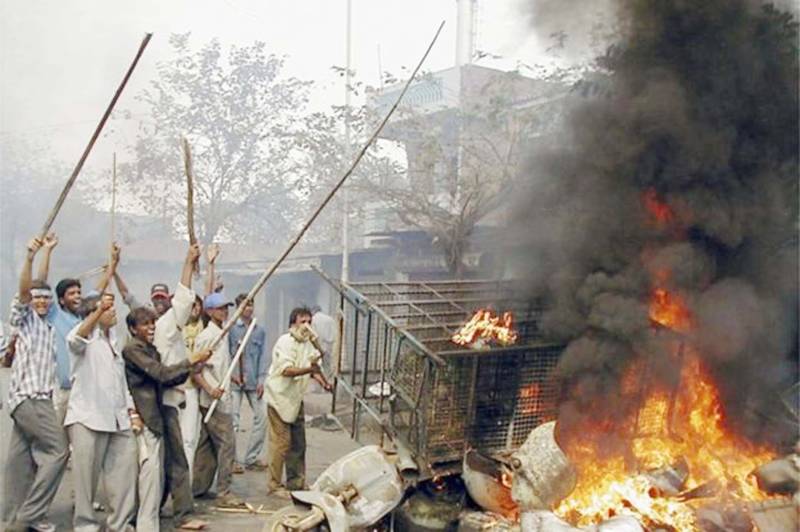24 have been convicted in the Indian-Gujarat Muslim massacre of 2002. The prosecution has sought death penalty for the convicted Hindu fanatics. The convicts were charged of all the heinous crimes, a human dictionary of crime can define. They were responsible for hacking and burning 69 Muslims who were taking shelter in a residential complex in the city of Ahmadabad. The details of the atrocities become unnecessary when we look at the very definition of the crime they have committed and now are convicted of it.
Back in 2002, world was appalled at the level of violence perpetrated by the majority against the minority. This is the unfortunate aspect of being living side-by-side with a majority who nobody actually knows what it thinks of its minority composition. The grievances of minority generally don't go beyond some whispers and occasional protests but the same is not true in the case of majority. When majority harbors hostile feelings then if that doesn't get checked, it results in the form of massacres that the world saw in Gujarat. The mobs that roll-out from the majority have generally no fear of the repercussions and they commit crime to its deadliest level.
The question remains to be asked, why so much hatred? How people who live together and deal among each other on daily basis and their kids attend the same schools, would let go of all those feelings and in an emotionally charged moment get ready for carnage of the very same people? The answer falls deep somewhere in our brain. Generally we have empathy for our fellow beings but something called mob psychology turns these feeling upside down in a matter of minutes. This is where the social structure that protects minorities and weak collapses. The rule of the thumb lies in the deep introspection of oneself especially when you are part of the majority. Take a step forward and try to have a deep look at your alignment and observe it from an angle as if you are not part of that alignment, how would you feel?
But if we look at the Gujarat massacre, the society elders not only did not play their role, they in fact encouraged the violence by turning a blind eye to it. The then Chief Minister of Gujarat Narendra Modi has been reported as saying "Let the people vent out their anger". That venting caused hundreds to lose their lives in the most brutal manner one can imagine. The state police didn't intervene for almost five days. Mobs and goons had all the freedom to kill, burn, hurt, rape anyone (read Muslims) at their whim and fancy. It resembles the story-line of movie The Purge, although movie depictions are imaginative but the true 'Purge' went on in Gujarat for five consecutive days. Imagine the situation of a mother protecting herself and her child running away from thousands but then gasoline is thrown at her and she is torched to death along with her infant. Wasn't it somehow too excessive to permit this kind of 'venting'?
At the same time by emphatic mention of the word Hindu shouldn't bring anyone the hurt feelings but sadly in Gujarat, this was the case. It is also true the kind of anger later shown by the Indian society in general should also be taken into account. All the commissions formed for the investigation of this unfortunate human history event were chiefly composed of Hindus and extremely critical remarks have been passed on by the judges against the Modi administration. These remarks and decisions are now part of the judicial and journalistic history of India.
But out of those unfortunate events some strange coincidences also took place. Narendra Modi, who became the most criticized person across India and the world after Gujarat carnage, also turned out to be an implicit winner of the situation. As they say, there is nothing called negative publicity. Modi was mentioned so excessively in the years that ensued that he became a household name – although for the wrong reasons. Though initially known for his hard-line Hindu credentials, he somehow maneuvered the situation to his advantage and eventually became the unopposed candidate for the BJP leadership. A position that landed him in the slot of Prime Minister of the world's largest democracy. But frankly, it scares me too.






